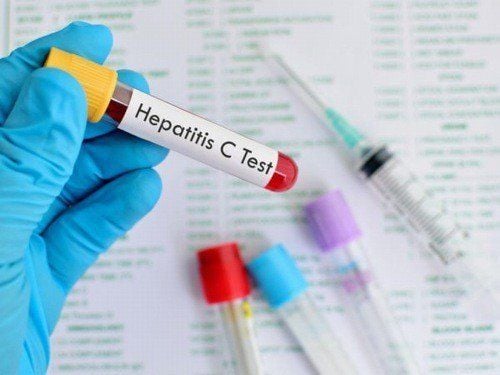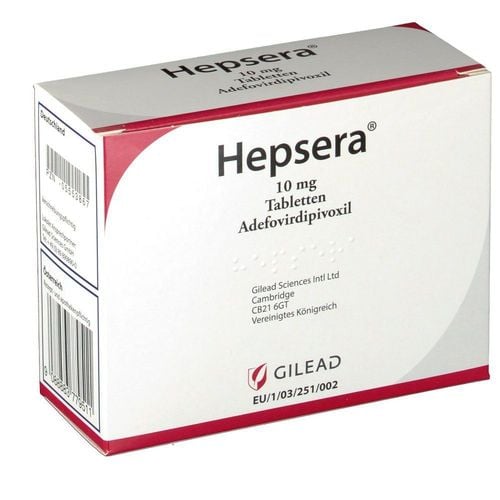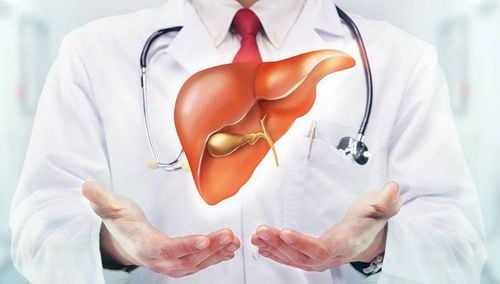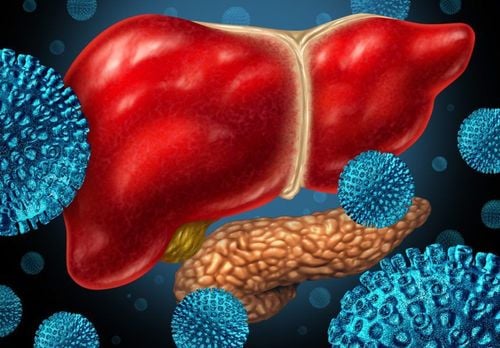This is an automatically translated article.
The article is professionally consulted by Master, Doctor Nguyen Thi Nhat - Infectious Disease Specialist - Department of Medical Examination & Internal Medicine - Vinmec Hai Phong International General Hospital.
Hepatitis C is an infectious disease caused by the hepatitis C virus (HCV). The disease often turns from acute to chronic without any symptoms. Undiagnosed and untreated chronic hepatitis C increases the risk of cirrhosis, liver failure, and liver cancer.
1. Hepatitis C Testing and Diagnosis
1.1 Anti-HCV antibody test Anti-HCV antibody test is the first test to determine the existence of anti-viral antibodies in the body. Antibodies against the hepatitis C virus are proteins the body makes when the virus is found in the blood and usually appear about 12 weeks after being infected with the virus. Test results are usually returned in a few days to a week. If the test result is positive, it means that the body is at high risk of contracting the virus and further tests are needed to be sure. Or if the results come back negative but you suspect you have a high risk of infection within the past 6 months, you should do this test a second time to be more certain.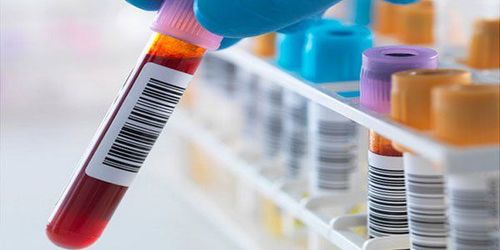
HCV – RNA (HCV load measurement): The test is used to measure the amount of viral RNA (the genetic material of the hepatitis virus) in the blood, also known as viral load determination. They usually appear 1-2 weeks after infection. If the result is positive, it means you have hepatitis C. Liver function test: A test used to measure the levels of proteins and enzymes in the liver. They usually increase 7 to 8 weeks after infection. When the liver is damaged, enzymes build up in the blood. In addition, many people with normal enzyme levels still have hepatitis C.
2. Tests after being diagnosed with hepatitis C . infection
After the diagnostic tests are done, the next step is to perform the tests to determine the condition, including:2.1 Genotype tests Genotyping tests are indicated determined for the purpose of determining the genotype of the virus that causes the disease in 6 existing types (genotypes) of hepatitis C virus.
2.2 Test to check the extent of liver damage Liver biopsy. Liver elastography indirectly determines the degree of liver fibrosis Liver function test (LFT) or liver enzyme test: These blood tests help doctors determine whether the liver is still working well. .
3. How is hepatitis C spread?
3.1 Activities that increase the risk of high levels of infection Needle and syringe contact: All parts of the syringe from the syringe to the needle can be contaminated with small amounts of blood containing the hepatitis C virus. Tubes designed for smoking or inhaling may contain blood from a wound in the nose or mouth or nosebleeds. People who are sick should dispose of needles and syringes in the right place to ensure the safety of others. People at risk of infection should see a doctor to be tested to confirm the disease.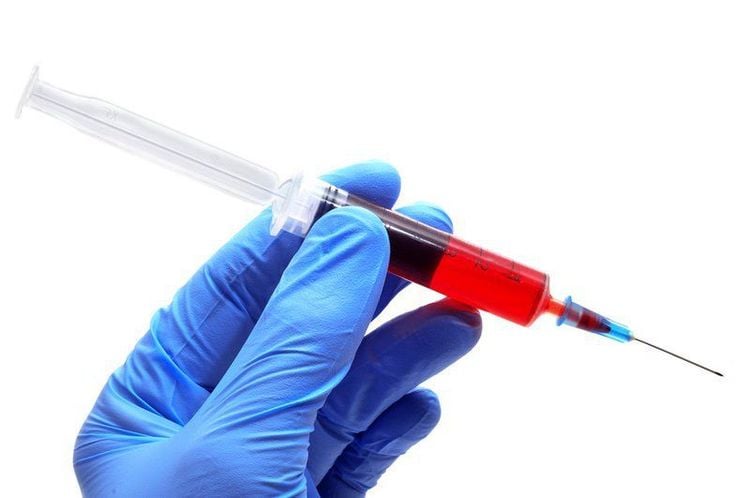
4. Subjects at risk of hepatitis C
People at high risk for hepatitis C virus infection include:People who have shared needles in an injection (even once) People born between 1945 and 1965 Test results for concentrated blood performed before 1987 People who received blood transfusions or organ transplants before July 1992 People who received blood or organs from a donor who tested positive for hepatitis C People who are on dialysis, are sick, are sick HIV infection Health care workers, who are at high risk of coming into contact with needles and syringes contaminated with the patient's blood
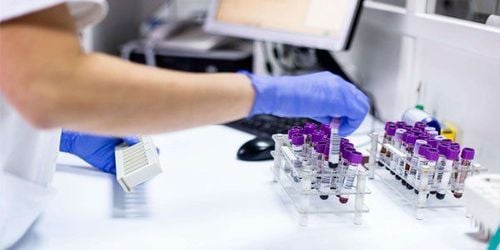
Hepatobiliary screening package helps customers:
Assess the liver's ability to work through liver enzyme tests; Evaluation of bile function; vascular nutrition; Early screening for liver cancer; Perform tests such as Total blood cell analysis, blood clotting ability, screening for hepatitis B and C; Assessment of hepatobiliary status through ultrasound images and diseases that have the potential to affect liver disease / make liver disease worse; In-depth analysis of parameters to evaluate hepatobiliary function through laboratory and subclinical; the risk of affecting the liver and early screening for hepatobiliary cancer. Master. Doctor. Nguyen Thi Nhat has more than 10 years of experience in the field of artificial kidney, and in the field of infectious diseases, examination and management of patients with kidney disease and infectious diseases. Currently working as a Doctor of Infectious Diseases, Department of General Internal Medicine, Vinmec Hai Phong International General Hospital
Please dial HOTLINE for more information or register for an appointment HERE. Download MyVinmec app to make appointments faster and to manage your bookings easily.
Reference source: Webmd.com




